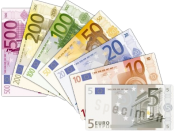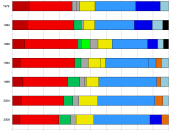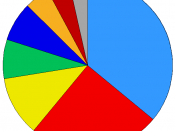Contents
1.Introduction
2.Theory of Monetary Integration
3.Europe as an Optimal Currency Area
3.1 Factor Mobility
3.2 Volume of Trade
3.3 Degree of Synchronisation of Business Cycles
3.4 Fiscal Transfers
4.Positive Effects of the euro
4.1 Goods and Financial Markets
4.1.1 Business Confidence
4.1.2 Reduced Costs and Downward Pressure on Prices
4.1.3 Stability
4.1.4 Integration of Financial Markets
4.2 Macroeconomic Effects
4.2.1 Price Stability
4.2.2 Low Interest Rates
4.2.3 Resistance to external Shocks
4.3 Global Effects
4.4 Societal Effects
4.4.1 Convenience
4.4.2 Wide Acceptance of Currency
5.Negative Effects of the euro
5.1 No Control of Monetary Policy
5.2 Limited Fiscal Policy
5.3 Low Labour Mobility in the Eurozone
5.4 A Strong euro
6.Future Considerations
6.1 Flexibility of Fiscal Policy
6.2 Adopting the euro as Reserve Currency
6.3 New Member States
7.Conclusion
8.References
1.Introduction
The euro has been years in the making. Ever since the Treaty of Rome in 1957 in which a common European market was declared as a European objective, Europe has been steadily moving towards a common currency.
From 1958-1985, six European countries formed a customs union. They had a common commercial policy with common external tariffs on imports but integration of economic policy was minimal. In 1985, the common market was formed. This turned them into a large economic power, acting in world trade as a single unit. From 1992 onwards, the single market became an economic and monetary union.
In order to participate in the new currency, countries have to follow meet strict convergence criteria as specified in the 1992 Maastricht Treaty. For example, the ratio of government deficit to gross domestic product (GDP) must not exceed 3%. Others include a commitment to achieve price and currency stability.
In 1999, the exchange rates of the participating currencies were...


